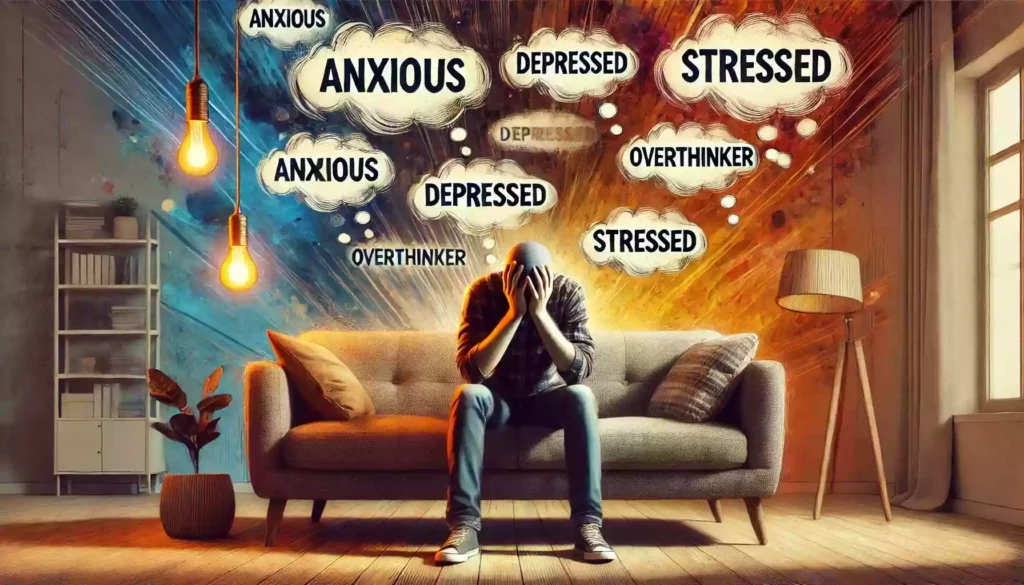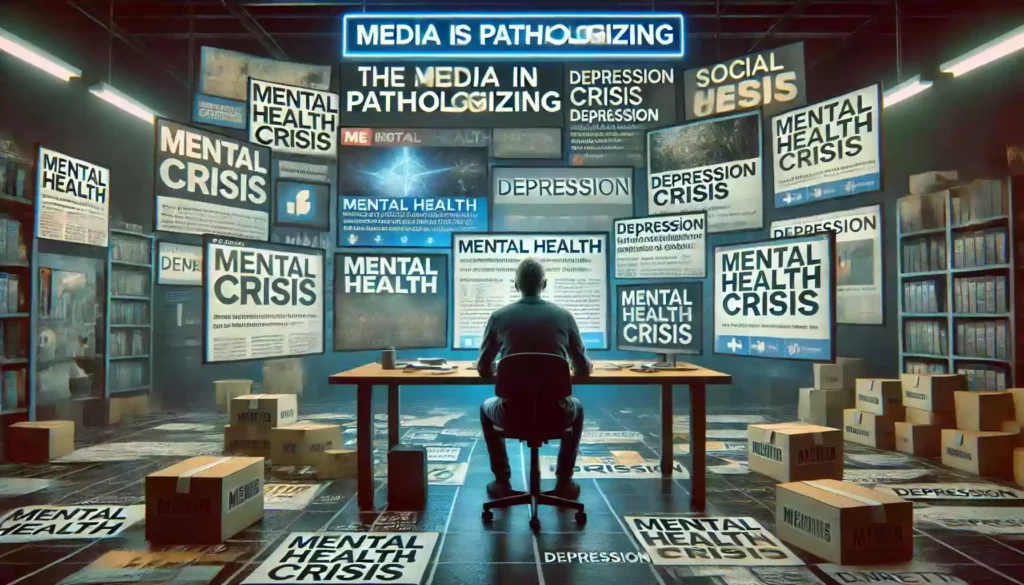Key Takeaways:
- Understanding pathologizing's true definition
- Impact of media on stigmatization
- Recognizing common pathologized behaviors
- Psychological reasons behind pathologizing
- Ways to avoid being pathologized
What Does Pathologizing Mean?
Pathologizing refers to the practice of treating or viewing normal behaviors, emotions, or conditions as medical or psychological issues. It's a process where everyday human experiences are labeled as disorders, often unnecessarily. This can lead to a distorted understanding of what is actually a normal variation in human behavior.
For example, someone might be seen as "too sensitive" or "overly emotional" and be pathologized as having a mental health condition, even when their reactions are perfectly natural given the circumstances. Pathologizing can be a subtle but pervasive issue in society, influencing how we view ourselves and others.
The History of Pathologizing
The concept of pathologizing has evolved over time, with roots tracing back to the medicalization of certain behaviors and traits. In the past, many natural human behaviors were pathologized due to a lack of understanding. For instance, women exhibiting strong emotions were often labeled as 'hysterical' and subjected to unnecessary medical treatments.
In more recent history, we've seen an increase in the medicalization of everyday behaviors, driven in part by the pharmaceutical industry's influence. The rise of diagnostic labels for various conditions has also contributed to this phenomenon. As awareness of mental health issues has grown, so too has the tendency to categorize and label behaviors, sometimes excessively.
Understanding this history helps us recognize the patterns and biases that contribute to the current state of pathologizing in society. It's crucial to be aware of these influences to foster a more compassionate and accurate view of human behavior.
How Pathologizing Affects Mental Health

Pathologizing can have a profound impact on one's mental health. When normal behaviors are labeled as disorders, individuals may begin to see themselves through a distorted lens, leading to feelings of inadequacy and self-doubt. This can contribute to a cycle of negative self-talk and increased anxiety or depression.
For example, consider someone who experiences occasional sadness. If this is pathologized as clinical depression without proper context, the person might internalize this label, believing there's something fundamentally wrong with them. This can prevent them from seeking healthy coping mechanisms and instead lead them down a path of unnecessary medication or therapy.
Renowned psychologist Dr. Thomas Szasz noted, "Labeling a person as mentally ill is not an explanation; it is a label for a person we dislike or fear." This quote underscores the danger of oversimplifying complex human emotions and experiences into diagnostic categories. It is essential to differentiate between genuine mental health conditions and normal variations in behavior to avoid unnecessary stigmatization.
Common Behaviors That Get Pathologized
In our society, certain behaviors are often pathologized, even when they fall within the spectrum of normal human experience. For instance, introversion is sometimes seen as a social deficit rather than a personality trait. Introverts might be labeled as antisocial or shy, overlooking the fact that they simply recharge differently compared to extroverts.
Similarly, children who are highly energetic or have difficulty focusing are frequently diagnosed with attention-deficit/hyperactivity disorder (ADHD). While ADHD is a real and valid condition, not every child who exhibits these behaviors necessarily has it. Overdiagnosis can lead to unnecessary medication and stigmatization.
Even natural reactions to stress, such as crying or feeling overwhelmed, can be pathologized. Instead of recognizing these as healthy emotional responses, society often pressures individuals to suppress their feelings, labeling them as weak or overly emotional. This not only invalidates their experiences but also discourages healthy emotional expression.
The Role of Media in Pathologizing

The media plays a significant role in pathologizing behaviors and emotions. Through sensationalist headlines and dramatic portrayals, media outlets often exaggerate and misrepresent mental health issues. This can lead to a distorted public perception, where normal emotional responses are seen as signs of mental illness.
For example, media coverage that focuses heavily on celebrities' struggles with mental health can create an atmosphere where every deviation from the norm is scrutinized and labeled. This constant exposure to exaggerated portrayals can make people more likely to self-diagnose or misinterpret their feelings and behaviors as pathological.
Moreover, social media amplifies this effect by providing a platform for spreading these narratives quickly and widely. The echo chamber effect, where similar ideas are reinforced and alternative views are diminished, further exacerbates the issue. It's crucial to critically evaluate media content and seek balanced, accurate information to avoid the pitfalls of pathologizing.
Why We Pathologize: Psychological Underpinnings
Pathologizing often stems from our psychological need to categorize and make sense of the world. Humans have a natural tendency to label and classify experiences, which can be a helpful cognitive shortcut. However, this inclination can become problematic when it leads to oversimplification and misunderstanding of complex human behaviors.
Another factor is the discomfort we feel when confronted with behaviors that deviate from the norm. Labeling these behaviors as disorders can be a way to manage this discomfort and make the unfamiliar more understandable. It's a defense mechanism that helps us maintain a sense of order and predictability in our lives.
Additionally, the desire to medicalize and find solutions for every problem can contribute to pathologizing. In a society that values quick fixes and clear answers, there's a strong pull towards diagnosing and treating even the most minor deviations from the norm. This can lead to an overemphasis on pathology, where normal variations in behavior are viewed through a clinical lens.
Understanding these psychological underpinnings can help us recognize the biases and tendencies that lead to pathologizing. It encourages a more compassionate and nuanced approach to human behavior, one that respects the diversity and complexity of individual experiences.
Steps to Avoid Being Pathologized
Avoiding pathologization starts with self-awareness and education. By understanding the difference between normal emotional experiences and genuine mental health concerns, we can better navigate the complexities of our feelings. It's essential to recognize that not every negative emotion or challenging behavior is a sign of a mental disorder.
Another important step is to question the labels and diagnoses we encounter, whether they come from professionals, media, or even friends and family. Always seek a second opinion if you're unsure about a diagnosis, and consider consulting a mental health professional who takes a holistic approach to your well-being.
Additionally, practicing open communication with trusted individuals can help. Sharing your experiences and getting feedback from others can provide valuable perspectives and prevent you from internalizing unfounded labels. Engaging in supportive communities and seeking peer support can also reduce the risk of feeling isolated or misunderstood.
Lastly, it's crucial to be mindful of the language we use. Avoiding self-labeling and encouraging others to do the same can help reduce the stigma associated with mental health issues. Embrace the complexity of human emotions and resist the urge to simplify them into neat categories.
Personal Stories of Pathologization
Personal stories of pathologization highlight the real-world impact of this issue. One example is the experience of a young woman who was labeled as "overly sensitive" throughout her childhood. This label followed her into adulthood, where any display of emotion was dismissed as irrational or excessive. It wasn't until she sought therapy that she realized her emotions were valid and part of a normal human experience. This revelation was freeing, but it also highlighted the years she spent doubting her own feelings.
Another story involves a man who was misdiagnosed with bipolar disorder after experiencing a period of intense stress at work. The diagnosis led to a prescription for medication that had severe side effects and did not address the root cause of his distress. After consulting with a different therapist, he discovered that his symptoms were more related to situational anxiety rather than a mood disorder. This misdiagnosis not only affected his treatment but also his self-perception and relationships.
These stories underscore the importance of accurate diagnosis and the dangers of pathologizing normal emotional responses. They remind us that while mental health labels can be helpful, they must be used with care and consideration of the individual's unique context and experiences.
Conclusion: Moving Towards Compassion and Understanding
As we move forward, it's crucial to cultivate compassion and understanding in how we perceive and respond to human behaviors and emotions. Pathologizing, while often unintentional, can have profound effects on individuals, influencing their self-esteem and overall well-being. Recognizing this, we must strive to see beyond labels and embrace the full spectrum of human experience.
One way to foster this understanding is by educating ourselves and others about the complexities of mental health. Encouraging open conversations about emotions and mental health can help demystify these topics and reduce the stigma associated with them. It's about creating a culture where people feel safe to express their feelings without fear of being labeled or judged.
Moreover, professionals in the mental health field must continue to advocate for careful, individualized diagnoses that consider the person's entire context. This holistic approach can prevent unnecessary pathologization and ensure that those who genuinely need help receive appropriate support. We should also support initiatives that promote mental health literacy, as this empowers individuals to make informed decisions about their own well-being.
Understanding and compassion are the keys to breaking down the barriers created by pathologizing. By acknowledging the richness and diversity of human emotions, we can create a more inclusive and supportive environment for everyone.
Recommended Resources
- "The Myth of Mental Illness" by Thomas Szasz
- "Rethinking Madness" by Paris Williams
- "The Diagnostic and Statistical Manual of Mental Disorders (DSM-5)" by American Psychiatric Association




Recommended Comments
There are no comments to display.
Create an account or sign in to comment
You need to be a member in order to leave a comment
Create an account
Sign up for a new account in our community. It's easy!
Register a new accountSign in
Already have an account? Sign in here.
Sign In Now